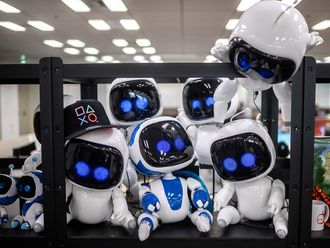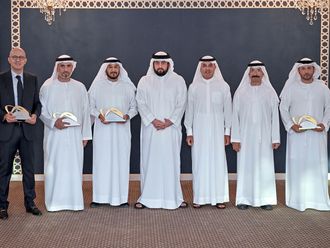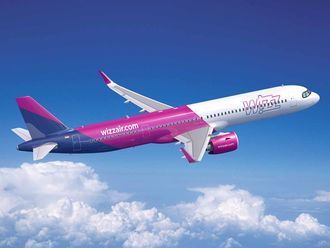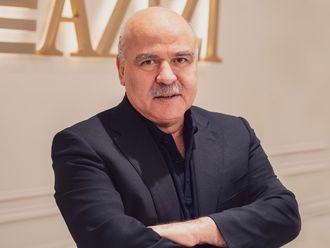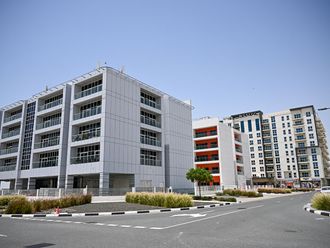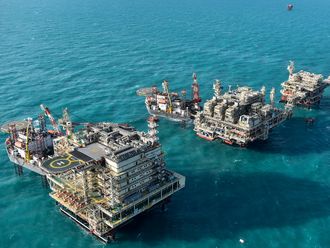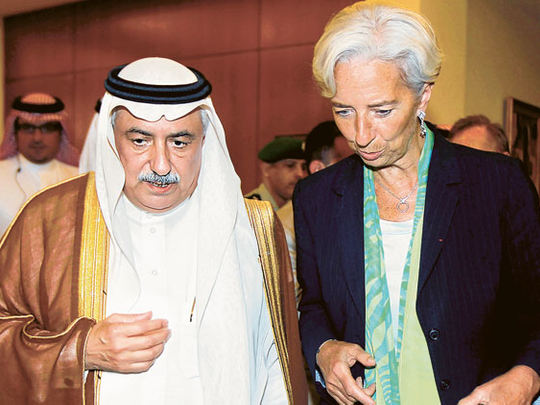
Riyadh: International Monetary Fund managing director Christine Lagarde faces a tough but not impossible sell when she visits Saudi Arabia today to discuss a contribution from the oil-rich kingdom to the IMF's $500 billion (Dh1.83 trillion) fundraising effort to fight the European debt crisis.
Though Saudi Arabia's oil exports go mainly to Asia, and therefore are less affected by the crisis in Europe, the kingdom's rulers will be mindful of the dangers of a global downturn if the European crisis can't be brought under control.
But while Saudi officials publicly and privately over the past two weeks have indicated their willingness to at least discuss contributing to the fund, they also complain that the global economic problem is the fault of the West, and say that wealthy emerging economies want a bigger say in international financial oversight going forward if they do help out now.
"It's all going to be how she presents the case," one Saudi familiar with some of the deliberations said ahead of Lagarde's arrival.
Lagarde is due in Saudi Arabia today and tomorrow after a stop in Tunisia.
Last month, the IMF said it was seeking $500 billion in new lending capacity in order to help cope with the effects of Europe's debt crisis. Members of the Eurozone have said they will contribute about $200 billion, and the IMF is hoping for contributions from China, Brazil, India and other large emerging nations.
More power
Other rich emerging economies such as China have suggested that they would need either more power at the IMF - perhaps through increased shares at the fund - or trade concessions from Europe to give money to help the Eurozone.
That could complicate any IMF fundraising effort because the leading IMF shareholders — including large European nations — have resisted any suggestion of giving up their power in exchange for more money. The US, which has said it won't provide any funds, is the IMF's largest shareholder and can block many major IMF changes.
More than some other countries and regions, the economy of Saudi Arabia and the rest of the Gulf is insulated from a direct hit if Europe's financial crisis does deepen, some economists say.
Two-thirds of Saudi oil goes to China and other Asian countries, noted Tarek Coury, a Doha-based economist.
The international dispute with Iran, and Saudi indications that the kingdom will try to make up for any Iranian oil supply taken offline by sanctions, mean that oil prices are likely to remain strong, and Saudi oil production is likely to remain high, Coury said.
The kingdom's economy is also cushioned by its $500 billion of foreign exchange reserves.
Other economists, however, argue that either a worsening of Europe's financial problems, or any resulting fall-off in the global recovery, could hit the kingdom hard.
‘Notable impact'
A recession in Europe would have a "notable impact" on global oil demand, Riyadh-based Jadwa Investment Co said in its outlook for 2012.
In 2009, the fall in demand for oil from Europe was greater than the increase in demand from all emerging markets, Jadwa analysts pointed out.
Saudi Arabia, which has sunk an additional $130 billion into job-creation and other domestic programnes as political unrest hits elsewhere in the Arab world, needs high oil prices to support the massive increase in its budget expenditures since the start of the Arab Spring.
Strings attached
Over the past two weeks, prominent Saudis have for the first time indicated publicly the kingdom might be willing to give money — but with some strings attached.
"What we can be certain of is that large developing nations will not agree to provide additional funds without a greater say in the IMF's affairs, and this applies to all global economic governance organisations," Prince Turki Al Faisal, a senior member of the royal family and a former Saudi ambassador to the US, told an audience in Riyadh late last month.


